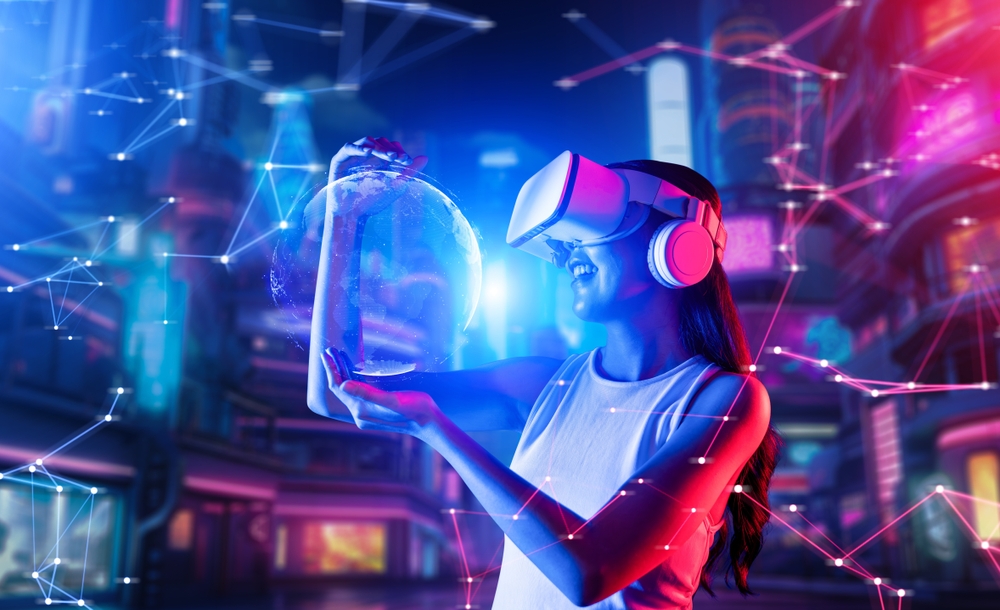
In the ever-evolving landscape of digital marketing, a new frontier has emerged that promises to revolutionize how brands interact with consumers: the metaverse. This comprehensive overview delves into its definition, current state, marketing opportunities, challenges, successful case studies, and what lies ahead.
What is the Metaverse?
The metaverse is a collective virtual shared space that merges virtually enhanced physical reality with persistent virtual environments. It's an immersive experience where users can interact in real-time, blending elements of virtual reality (VR), augmented reality (AR), and mixed reality (MR).
For digital marketing, the metaverse represents an evolution of the internet—offering immersive, interactive experiences that redefine consumer engagement.
Current State of the Metaverse
The metaverse is still in its infancy but growing rapidly, driven by:
- Technological Advancements: VR, AR, blockchain, and AI are paving the way for immersive experiences.
- 5G Networks: Faster, low-latency connectivity is enabling seamless metaverse experiences on mobile devices.
- Investment Surge: Over $10 billion was raised for metaverse projects in 2021, with tech giants like Meta heavily investing in platforms.
However, the path hasn't been without challenges. Some companies have faced financial setbacks, but the momentum for development continues.
Why the Metaverse is Gaining Popularity in Marketing
The metaverse is a game-changer for marketers, offering:
- Immersive Experiences: Three-dimensional interactions that engage users like never before.
- Integration of VR and AR: Enables virtual product trials and enhanced shopping experiences.
- New Revenue Streams: Virtual goods sales reached $54 billion in direct-to-avatar transactions.
- Gen Z & Millennial Appeal: Younger audiences are gravitating toward metaverse platforms.
- Enhanced Data Collection: Offers deeper insights into consumer preferences for targeted strategies.
Marketing Opportunities in the Metaverse
The possibilities for marketing in the metaverse are vast and growing:
1. Virtual Reality (VR) Experiences
Create immersive environments like virtual showrooms. For example, Porsche and Hyundai have introduced 3D car showrooms that allow customers to explore vehicles virtually.
2. Augmented Reality (AR) Applications
AR enhances real-world experiences, such as virtual try-ons and product visualizations. IKEA’s AR app lets users visualize furniture in their homes before purchase.
3. Digital Collectibles and NFTs
Nike ventured into the NFT space with unique digital products, enabling exclusive ownership of virtual items.
4. Virtual Events and Concerts
Platforms like Fortnite have hosted virtual concerts for artists like Ariana Grande and Travis Scott, breaking attendance records and engaging global audiences.
5. In-Game Advertising
Brands can advertise through virtual billboards and branded environments within games, reaching highly engaged users.
Strategies for Creating Engaging VR/AR Content
Want to succeed in the metaverse? Here are actionable strategies:
- Immersive Brand Experiences: Build virtual spaces that reflect your brand identity.
- Gamification: Incorporate game-like elements to boost engagement and loyalty.
- Virtual Events: Host interactive events like product launches or live Q&A sessions.
- User-Generated Content: Encourage users to create content within the metaverse to amplify your reach.
- Virtual Influencer Collaborations: Partner with virtual influencers to tap into new audiences.
- Branded NFTs: Offer digital collectibles to create exclusivity and loyalty.
- Interactive Storytelling: Use immersive narratives to tell your brand story in compelling ways.
Challenges in Metaverse Marketing
While exciting, the metaverse comes with its share of challenges:
- Privacy Concerns: The risk of data breaches increases as more user data is collected.
- Technical Expertise: Building 3D experiences requires specialized skills in modeling, programming, and design.
- Budget Constraints: Developing immersive experiences can be resource-intensive.
- Accessibility Issues: Not all consumers have access to the necessary hardware or high-speed internet.
- Evolving Landscape: Constant technological changes require brands to stay adaptable.
Case Studies: Successful Metaverse Marketing Campaigns
1. Wendy’s
The fast-food giant created a branded game mode in Fortnite called “Food Fight,” leading to:
- 1.5 million minutes watched on Twitch.
- 119% increase in social media mentions.
2. Gucci
Launched the “Gucci Garden” on Roblox, attracting over 4.5 million users in one week and selling over $1.2 million in virtual items.
3. Nike
Partnered with RTFKT to release the “CloneX” collection, featuring 20,000 unique virtual sneakers.
4. Coca-Cola
Introduced digital collectibles and virtual events, resulting in a 12% sales increase in 2022.
5. Hyundai
Created “Hyundai World” in Roblox, allowing users to explore virtual cars and connect with younger audiences.
Future Outlook and Predictions
The metaverse’s potential is immense, with exciting developments on the horizon:
- Market Growth: Expected to reach $678.8 billion by 2030.
- Web3 Integration: Decentralized technologies will enhance privacy and ownership.
- Enhanced Immersive Experiences: Photorealistic avatars and 3D environments will redefine engagement.
- Expanded Marketing Strategies: Brands will increasingly leverage NFTs, gamified campaigns, and virtual events.
- Focus on Younger Audiences: The metaverse will remain pivotal for Gen Z and millennial engagement.
Conclusion
The metaverse represents a transformative opportunity for digital marketing, offering brands unprecedented ways to connect with consumers through immersive experiences.
At ULEGENDARY Digital, we specialize in crafting forward-thinking metaverse strategies, helping brands embrace this bold new frontier with creativity and confidence.
Ready to take your marketing into the metaverse? Visit ulegendary.com to explore how we can guide you to success in this exciting new era of digital marketing.
As one marketing expert put it:
“If you’re not in the metaverse, you’re nowhere.”
So, are you ready to bring your brand to life in the metaverse?





